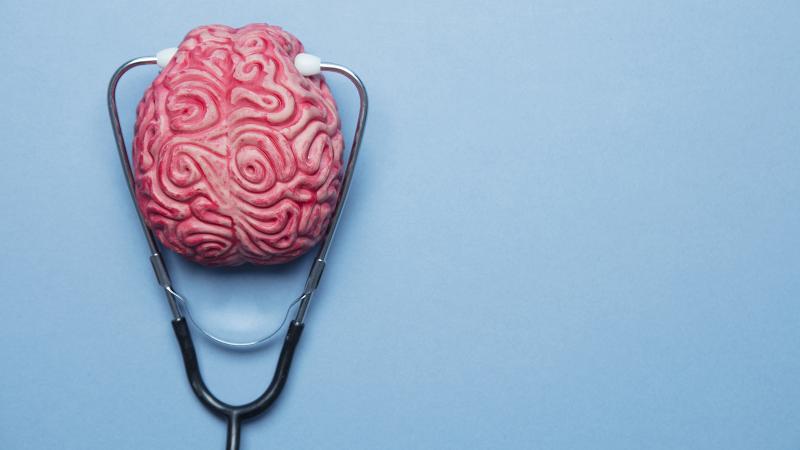This year has been a lot to take in. Balancing good physical and mental health while riding out a global pandemic and touch-and-go economic uncertainty hasn’t been easy. At the very least, we all need to make sure to keep our own personal well-being in check. Maintaining good health, both physically and mentally, is one of the best ways to make the next few months as manageable as possible. Especially with flu season and the winter months coming up, keeping our immune system and minds healthy has never been more important.
Your immune system and your mental health are not only incredibly vital to maintain during this time, but they are actually linked closer than you might think. In general, most people feel a little moody when their health isn’t in good condition, which is a common side effect of just about any sickness. On the extreme end of the spectrum, however, some infections have been known to trigger severe mental illness, such as schizophrenia.
The two are fundamentally connected, and maintenance of one can almost always benefit the other. Read on for some insight into the relationship between the two, and some actions you can take to help keep them both in good standing.
How Your Immune System Affects Mental Health
When we aren’t 100%, perhaps with a common cold or flu, we tend to feel a little bit sad. This can be because we don’t have the energy or will to do the activities we want or need to do, we can’t see our friends or family for fear of getting them sick, or any number of discouraging side effects.
While it’s undeniable that being sick makes us feel blue, there is actually a scientific reason as to why we feel like this when our immune system is shot. When your body is trying to fight off an infection or virus, almost all of your energy goes towards doing just that – leaving very little resources for anything else, contributing to feelings of low energy, depression and general malaise.
The reason behind this can be attributed to the communication between immune cells and brain cells. The signals that are transmitted between the two can affect general cognition and brain responses that are highly related to depression and pain. When our immune system is affected, the signals that get transmitted are affected as well, producing those familiar feelings of depression and low mood.
How Mental Health Affects Your Immune System
Now, what happens when poor mental health precedes a weakened immune system? Individuals with mental disorders tend to be more susceptible to infection and diseases, which may make the time ahead even more challenging.
Some of the most common side effects of depression, for example, include stress, poor diet, changes to sleep and social isolation. At the same time, these factors all negatively affect our immune system’s ability to function at full capacity. Something as simple as neglecting exercise or failing to eat healthy meals for a few days due to low mood can affect your immune system in a significant way.
A recent study on mice concluded a connection between stress and depression with immune function. Mice that were exposed to stressful or depressing situations developed certain immune responses that released inflammatory proteins into their system. That immune inflammation then triggered impaired responses in the brain and caused depressive and stressed behaviors. This research suggests that in some cases, some physical illness symptoms may be caused by the same or similar prompts as depression.

What You Can Do to Help
Keeping your mental health and immune system in tip-top shape might sound like a daunting task, especially when considering all of the other social factors the average individual is balancing at any given time. However, there are some basic practices you can follow that will help manage both areas at the same time.
One of the biggest ways to help both your immune system and mental health is by staying active. Anxiety surrounding COVID-19 has understandably been causing a great deal of distress for most people – the uncertain and volatile nature of the virus has kept people on edge for months. However, there is undeniable evidence that staying active for even a short amount every day can both boost your body’s defence system and keep anxiety at bay. Getting adequate amounts of sleep is also paramount!
Eating healthy is another critical aspect to stay on top of, and there are actually certain foods that far supersede others when it comes to immunity and mental health. For your immune system, keep citrus fruits, bell peppers, turmeric and garlic in your arsenal; to benefit your mental health, seek out foods that are high in Vitamin D and Omega-3.
Lastly, staying informed about everything that is going on, specifically, events that might affect your immune system and your mental health, is important to be able to make responsible decisions as parameters change. However, experts warn to not stay “too informed”, as it can do more harm than good. Being glued to media outlets and consuming every bit of information that comes through can have a negative effect on an individual’s anxiety and stress levels.
Radius is committed to furthering the conversation surrounding COVID-19 and the wellbeing of our followers. We are also happy to assist in any way that we can in helping our readers find meaningful and fulfilling healthcare jobs! If you are looking for a new position, visit our job board or email us directly at inquiries@radiusstaffingsolutions.com today.











